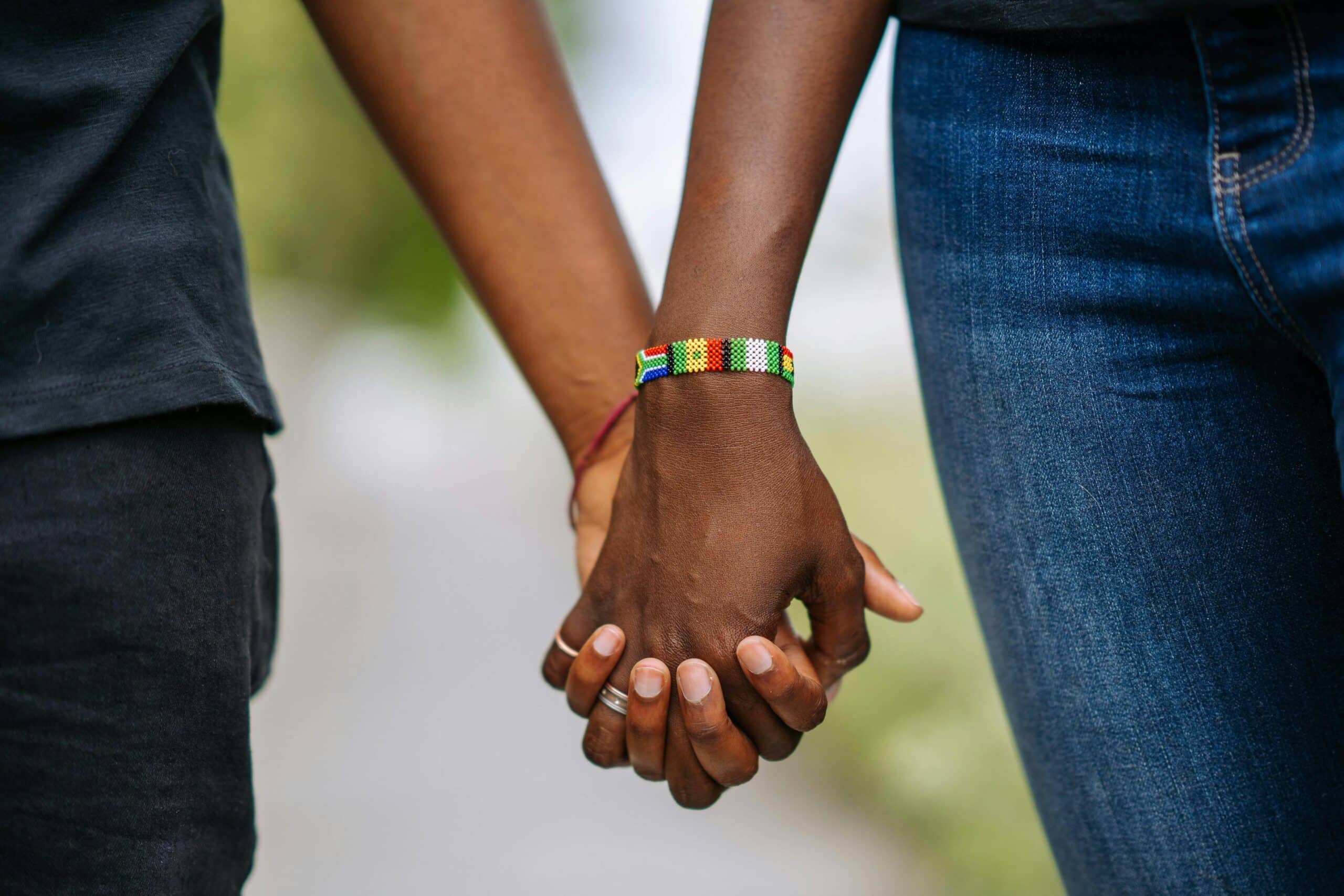Lesbian Pride – Let Your Relationship Dynamics Shine

Lesbian relationships can be fulfilling, rewarding, and amazingly healthy. But like all relationships, they do require work to be successful.
So, let’s unpack the dynamics that make such relationships satisfying for both you and your partner(s), no matter what the short- or long-term goals of those relationships might be.
Here you will find a guide to not just making those relationships work but also thrive.
Dump the Shame and Stigma
We’ve come a long way toward gender equality, despite the current political climate in some state legislatures. Still, same-sex marriage is a “done deal” and same-sex relationships are more and more in the public eye – in advertising and marketing campaigns, among celebrities and athletes, etc.
At the same time, lesbians and lesbian relationships may still face criticism and negativity from co-workers, family members, and even some (now former) friends.
Remember this: love is love no matter who is in love with whom. So, wear your love proudly. And if you are feeling any guilt or shame about your relationship, it is probably because of some unconscious homophobia you may have internalized when growing up. This is especially true for baby queer women who are just stepping into the waters of a lesbian relationship. They have the whole coming out thing along with a new relationship dynamic.
The best advice here? If you are a baby queer woman or an established lesbian who is feeling any bit of guilt, seek out some professional help to bring that guilt to the surface, deal with it, and make your relationship dynamics far healthier and more satisfying.
And also remember this: You may identify as a lesbian, but this does not mean that your relationship has to be monogamous with only one partner. You are free to be polyamorous with as open a relationship as you wish, as long as your non-monogamous dynamics are ethical.
Find Strength Among Allies
In any aspect of your life, you are always stronger when you surround yourself with those who support you in whatever it may be you are doing. Negative attitudes, on the other hand, cause you to doubt and lose your enthusiasm and self-confidence.
As lesbians in a relationship, who are your allies? Certainly, the entire LGBTQ+ community is. So get involved with this community.
Beyond that, connect with any allies that you find within the lesbian community specifically, and with any of your supportive family and friends in the straight community too.
These connections and support will serve to strengthen your relationship. Plan your social and other activities in their company.
Communicate and Validate
In some ways, lesbian love relationships are no different from any others. They thrive when both partners have open and honest communication. Any relationship therapist will tell you this is the key. So, what does open and honest communication look like?
-
Each partner is comfortable expressing their needs in the relationship, without fear of judgment or criticism from the other.
-
Each partner must commit to truly listening to the other. They can show they are listening by eye contact, repeating in their own words what their partner has expressed, and, again, not interrupting or being judgmental or critical. Each partner’s feelings are real and must be validated.
-
When issues and disagreements arise, it’s time for adulting. Getting emotional, angry, or aggressive will never work. Disagreements must be talked about rationally and calmly. If the partners cannot resolve their issues, seeking professional help may be called for.
Example:
Partner A is finding herself attracted to others outside of the relationship. Partner B is devastated (and certainly jealous if the relationship has been monogamous). Partner A wants to bring others into the relationship to have polyamorous experiences. Partner B is opposed, becomes emotional, perhaps enraged, and the communication devolves into chaos.
Can this relationship survive? Chances are, no. Why? Because the partners now have totally different goals for that relationship. Better to end it and move on. Is either partner at fault? Absolutely not. Each of them has the right to be who and what they are and to seek the type of relationship(s) they want.
And remember this: There will be a grieving process when any relationship ends. If either partner is not moving through this process and cannot let go, again, it’s time for some professional help.
Do The Small Things

If couples want to keep love alive and fresh, it’s the little things that count, just as they do in any relationship. Lesbian relationships are no different. So, start thinking about those little things you can do:
-
Send a text out of the blue just to say, “I love you,” “You are amazing,” or “I can’t imagine my life without you.”
-
Surprise her with tickets to a concert or sporting event you know she will love
-
Bring home her favorite takeout
-
Compliment her whenever you can – how she looks, how she cooks, how great she is in bed
-
Take her on dates that you plan
-
Surprise her with a weekend getaway
-
Bring her little gifts just because
-
Show physical affection at non-usual times, while you are cooking or cleaning together, for example
You know your partner best, so come up with little things that you know will please her.
Spend Time Apart

It’s easy to get completely wrapped up in each other when a relationship is new. That’s normal – you want to spend as much time together as possible, getting to know one another intimately. You do everything together and pretty much ignore the “world” you had before you met.
At some point, though, you will both want to pull parts of your former “world” back into your life. And those things may be very different. Suppose one of you is into outdoor activities such as hiking, volleyball, softball, and such. And that one of you misses your friends you used to do such things with.
And suppose the other one of you has been into books and art. There is a new book club forming or a new exhibit at a local gallery or art museum. Or you relish going to antique stores and picking up cool items.
Certainly, you can introduce each other to your beloved activities, but it’s nice to have some time apart when you pursue your interests on your own and socialize with others who share those interests.
Remember this: the two of you are not wholly defined by your relationship. You are defined by who you are as a unique and individual person. Think about some of the famous lesbian couples you know about. Rachel Maddow, a big cable TV personality lives in the world of politics and has a dedicated show on a cable news network. Her partner, Susan Mikula is an artist and photographer. They pursue their own careers and interests separately.
When both of you do keep other aspects of your lives intact, you actually strengthen your relationship – you’re both happier with yourselves and thus each other. If one partner begins to feel that aspects of who she is are being a bit “smothered,” there is trouble ahead.
Define what Your Relationship Will Look Like in the Beginning

This is absolutely critical over the long haul. There are absolutely no predetermined “rules” for any relationship, and certainly, some of the traditional roles in heterosexual relationships do not apply at all (unless partners agree to them, of course). Each relationship is unique.
Deciding on the expectations and ground rules in advance will avoid problems down the road. Here are some of the items that should be discussed and decided on:
-
What will the budget and finances look like if you are going to live together? One of you may have substantially more income than the other. How will that play out? How will bills and all other household expenses be apportioned out?
-
What about household chores? How will those be divided? And what are the expectations for keeping things neat and clean? One partner may be a “neat freak” and the other a bit on the sloppy side. While you may not see this as a problem in your newfound love, it can become one later on.
-
What are the expectations regarding any type of open relationship? Lesbian relationships are as diverse as any other relationships. There must be agreement on what type of relationship you two will have upfront. Surprises down the road are the quickest way to kill a relationship.
-
If you are looking at a long-term partnership, do you need to have power of attorney documents drawn up so that each of you can make medical and other decisions for the other?
-
Are there children involved? How will child care be arranged to accommodate each of your work schedules?
Do not assume that these things will just naturally work themselves out. In the glow of new love, you still have to be practical.
Focus on the Great Things of Your Relationship – The Bigger Picture

In the daily “grind” that is bound to occur, it is pretty much assured that small things will create friction between the two of you. One partner fails to put the cap back on the toothpaste; one partner doesn’t fold the laundry; one partner must work late and doesn’t inform the other until the last minute and plans have to be canceled or rescheduled.
There is just a myriad of things that can become irritants and cause friction. During times like these, it is important to focus on the larger picture. You got together because there was an attraction that turned into a strong relationship. The rest is just details.
Don’t let the details create discord. Be adults. Have calm conversations about these things and come to resolutions. Agree on how each of you will try to do better with these small things.
Stop with the Comparisons

It’s also easy to look at other lesbian relationship dynamics and compare yours to theirs. Maybe they “look” like they are having more fun; perhaps they look more “loving and attentive” toward one another. You don’t have any idea what goes on “behind closed doors” in their relationship, just as they have no idea about yours.
Every relationship is unique, irrespective of the gender identities involved. If you and your partner are satisfied with the dynamics of your relationship, let it all be. There is no need for comparisons. In fact, they can be destructive of your own relationship dynamic.
Do Not Rush Things

Remember the U-Haul jokes? Yes, they are jokes, but they can be true of your new relationship if you “leap before you look.”
You could be on the rebound from a failed relationship; you could be just lonely and ready to jump at the first potential partner that comes along; or you could be a baby queer who is ready for your first lesbian relationship.
Jumping into a relationship can be disastrous. Why? Because neither of you has taken the time to really get to know the other. You may move in together in your desperation to have a relationship only to find out that you are really incompatible. And what follows is the messy and difficult process of disentangling yourselves.
The right relationship will eventually come along, and it may take some “trial and error” to find it. Give yourself that time. When you meet a potential partner, move slowly. If it’s meant to be, it will stand the “test of time.”
Put Yourself First (At Times)

This may sound selfish at first. But think about it. No one can be in a healthy relationship unless they are fully healthy – mentally and physically. It’s called self-care and it’s important.
Traditionally, women have been known for being “caretakers” of sorts. If you are a “giver” and never a “taker,” you can fall into this same mode with your partner. And if your partner is a “taker,” you can get into a codependent relationship that is not healthy.
You need to take care of your own needs too. Take time for yourself, keep up with your hobbies or interests, take that class, and encourage your partner to do the same. Doing this makes both of you more well-rounded, and, let’s face it, you will have more to share with each other than just cooking, and cleaning.
Don’t Expect That Your Partner Will “Fix” or Complete You

You may have wounds from a previous relationship; you may have issues with self-esteem. And so, you enter a new relationship expecting all of this to be made right and whole – by your partner. Huge mistake.
If you are still in pain over a past relationship, it’s fine to go out and have some flings and short-term dating or sexual relationships. But if you are not fully over the trauma and pain of a past relationship, expecting to get into a long-term relationship now that will have your partner healing you is just not going to happen. That’s not your partner’s responsibility.
If you have this expectation, you will be disappointed, and the relationship will not stand the “test of time.”
You’re Partners, Not Roommates
This is an easy trap to fall into. When you were in college, you probably had a female roommate. Think about how that relationship went. You cleaned up your own space; you fixed your own meals; you probably traded clothes and outfits. This is how roommates operate.
You’re in a partnership now. And it’s different. If you find yourself only cleaning your space, making separate meals for yourself, etc., then you are not in a partnership.
Your love is an equal partner, and you take care of things together; you decide on meals and you eat together. Getting into the mode of only taking care of your personal responsibilities and care is not the essence of a partnership. Re-think what you are doing here.
Be Certain You Have Let Go of Your Exes

Rebound relationships are destined for failure. If you are not yet over your ex or exes, you have no place getting into a new relationship. It’s not fair to you and it certainly is not fair to your new partner who is expecting a total commitment based upon your full mental freedom to do so.
If you are still hanging onto the pain from a former breakup; if you are still following your ex on her social media accounts; if you are still contacting former mutual friends for news about your ex, then you are not over her.
Until you are fully free of these feelings and behaviors, you are not over your ex.
Don’t Forget to Flirt and Initiate

Part of the fun in a healthy relationship is to continue to flirt with one another. Sometimes, women who have been brought up in a traditional family environment are taught that flirting is the male’s role in developing relationships. And, it is the male’s role to initiate intimacy.
Newer generations are far more sexually liberated, and both flirting and initiation of intimacy belong to both genders. This is true of lesbian relationships.
Don’t be shy. If you are “feeling” it, do what those feelings tell you to do. Tell your partner how good she looks; trace her face with your fingers while you sit together; rub her legs under the table while in a restaurant. Put on something flirty while she is out and due to return.
In the bedroom, find ways to caress and arouse your partner. If you are uncomfortable at first, tell her so. She’ll understand. The more you practice flirting and being the aggressor in intimacy, the more comfortable you’ll become.
You’re Not Clairvoyant – Speak Up

Suppose your partner arrives home from work. She is unusually quiet, doesn’t seem to be into helping with dinner, and isn’t into the series you’ve been binge-watching on TV. During the evening, you are doing most of the talking, and she doesn’t seem to be really listening. At bedtime, she says goodnight and rolls over on her side of the bed – no act tonight.
What’s wrong? Have you done something wrong? Is she mad at you about something? Did something bad happen at work?
This is not the time to be silent. Put on your big girl pants and speak up. You can be sensitive and empathetic when you do. “Honey, you are not yourself. Do you want to talk about it? I have a pretty good listening ear. If there’s anything I can do, just let me know.” You have not “assumed” anything here – good for you. And if the problem involves you, hopefully, she will express it to you. If not, maybe you really can help, if only just to be a good and empathetic listener.
Understanding the Diversity in Lesbian Relationships
We live in an age of exploration and flexibility. It is quite likely that you, your partner, or both of you may decide to explore diversity beyond your just two-women relationship. Diversity might include polyamory, adding one or more others into the relationship (with the consent of all parties, of course), or experimenting with a variety of types of encounters.
If either of you is of a mind to do some exploration outside of the partnership, you and she must be honest about it upfront and before taking any action. Above all, ethics in these circumstances are absolutely critical.
Seek Therapy When You Need It

Sometimes in a relationship, there will be problems that go beyond what partners can resolve on their own. Lesbian relationship dynamics are no different. If the two of you are having repeated or significant problems, find a therapist.
There are therapists who specialize in lesbian and/or LGBTQ+ couples, so they may be better qualified to help you with the issues you face. Even better, a therapist will be a neutral third party who can be objective and who can help the two of you improve your communication and conflict resolution skills, not to mention any problems you may be having in the bedroom.
In the End…
Dynamics in a relationship refer to the patterns of behavior between two partners as they connect and ultimately form a romantic bond. In some ways, lesbian relationship dynamics are no different from any other relationship type – straight or LGBTQ+. In some ways, though, they are unique.
The purpose of this guide is to help lesbians as they navigate their relationships so that they are healthy and satisfying.



